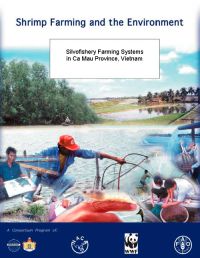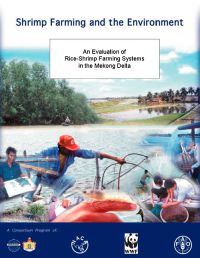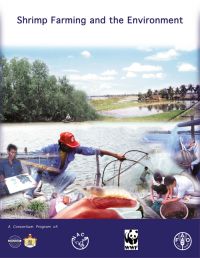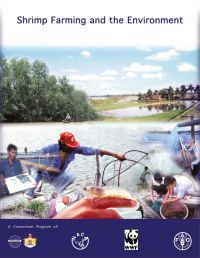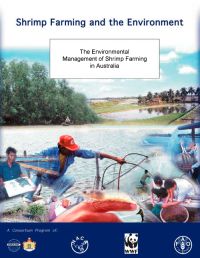This case study provides (1) a description of the farming systems and management practices for mixed shrimp aquaculture-mangrove farming systems in the Mekong delta of Vietnam and (2) the findings from a detailed socio-economic study of these systems. The findings provide insight into the social and economic status of farmers involved in mixed aquaculture-mangrove farming, and the constraints associated with the adoption of management recommendations, with special consideration of the problems faced by poor farmers.
The integration of dry season shrimp farming into rice fields has raised incomes over several consecutive seasons for many farmers in the region. However, our study has revealed some key constraints that need to be addressed in order improve environmental and economic sustainability. The results of our study show that the traditional practice of recruiting native shrimp species through water exchange is not sustainable because of the attendant build-up of sedimentation on the farm.
This case study is based on a farm survey of 41 farms out of the total 340 farms in the Rushan County. The results presented in this paper highlight two main problems. The first issue revolves around labor cost statistics. The value of labor cost during the culture period forms a larger than proportionate ratio of total variable cost. The second problem lies in the high fixed cost incurred by rehabilitated farms.
This case study is based on review of existing publications/reports and stakeholder consultations. It is divided into three main sections, namely: 1) Background review on shrimp aquaculture in Bangladesh. 2) Results from a case study of farm management practices, hatcheries and wild shrimp fry collection and 3) Results from a case study on the social aspects of shrimp aquaculture, based on detailed local level studies in the Khulna region.
In Australia, strict Commonwealth and state environmental regulations have constrained development of shrimp farming. A high level of resources, relative to the size and value of the industry, has been devoted to collaborative research on the environmental management of shrimp farming in Australia. The research findings are being used to provide a scientific basis for discharge license requirements and are incorporated into an advanced geographic information and decision support system in order to improve site selection and aquaculture planning.
